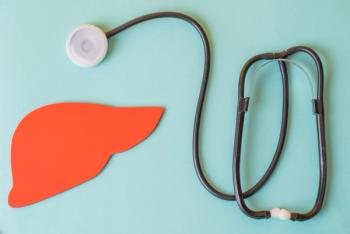
Uptake of Artificial Pancreas Systems in Primary Care Could Reduce Care Disparities
Findings about the willingness of primary care providers to prescribe artificial pancreas systems have positive implications for increasing access to and reducing disparities around this technology by alleviating the need to see a specialist.
With the recent emergence of artificial pancreas systems (APS) that allow for the
The findings have positive implications for increasing access to APS and reduce disparities accessing such technology by alleviating the need to access a specialist. Typically, endocrinologists have expressed a greater willingness to prescribe advanced diabetes technologies than PCPs, who have reported being uncomfortable initiating or adjusting traditional insulin pumps.
“Currently, diabetes technology like insulin pumps and CGMs are prescribed more frequently by endocrinologists,”
The study sample included 76 PCPs from 4 locations throughout the United States. The overwhelming majority (93%) of PCPs said they saw advantages in their prescribing of APS and not just prescribing by endocrinologists.
The majority of PCPs indicated that they would consider prescribing APS for type 1 diabetes (76%) and type 2 diabetes (68%), while only approximately one-third (37%) of respondents said they would consider prescribing the technology for their patients with gestational diabetes.
The mean age of responding PCPs was 38 years, with those younger being less likely to consider prescribing APS; notably, there was no association between time since training and a willingness to prescribe the technology for their patients with type 1 or 2 diabetes.
“The finding that younger respondents were less likely to consider prescribing APS while no association was found between time since training and willingness to prescribe APS seems counterintuitive,” noted the researchers. “This might be explained on the basis of the differences in the comparisons—2 groups (above or below the median) compared by age versus 3 groups (with fewer in each group) compared by years from training—making it less likely to find a significant difference among the smaller years from training groups.”
PCPs who were more familiar with CGM were more likely to have a positive outlook on APS through primary care, although even those unfamiliar with CGM generally saw advantages of APS and would consider prescribing it.
Reference
O’Donovan A, Oser S, Parascando J, Berg A, Nease Jr D, Oser T. Determining the perception and willingness of primary care providers to prescribe advanced diabetes technologies. J Patient Cent Res Rev. 2021;8(3):272-276. doi:10.17294/2330-0698.1819
Newsletter
Stay ahead of policy, cost, and value—subscribe to AJMC for expert insights at the intersection of clinical care and health economics.
















